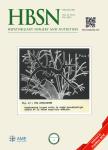Preparing for Iiver surgery with "Alphabet Soup": PVE, ALPPS, TAE-PVE, LVD and RL
作者机构:Department of RadiologyDivision of Interventional RadiologyMemorial Sloan Kettering Cancer CenterNew YorkNYUSA Department of Radiology and Biomedical ImagingSection of Interventional RadiologyYale School of MedicineNew HavenCTUSA
出 版 物:《Hepatobiliary Surgery and Nutrition》 (肝胆外科与营养(英文))
年 卷 期:2020年第9卷第2期
页 面:136-151页
核心收录:
学科分类:1004[医学-公共卫生与预防医学(可授医学、理学学位)] 1002[医学-临床医学] 100214[医学-肿瘤学] 10[医学]
主 题:Hepatic regeneration future liver remnant embolization
摘 要:Future liver remnant(FLR)is a critical limiting factor for treatment eligibility and postoperative prognosis when considering surgical ***-operative portal vein embolization(PVE)has been proven effective in modulating FLR and now widely accepted as a standard of ***,PVE is not always effective due to potentially inadequate augmentation of the FLR as well as tumor progression while awaiting liver *** concerns have prompted exploration of alternative techniques:associating liver partition and portal vein ligation for staged hepatectomy(ALPPS),transarterial embolization-portal vein embolization(TAE-PVE),liver venous deprivation(LVD),and radiation lobectomy(RL).The article aims to review the principles and applications of PVE and these newer hepatic regenerative techniques.



